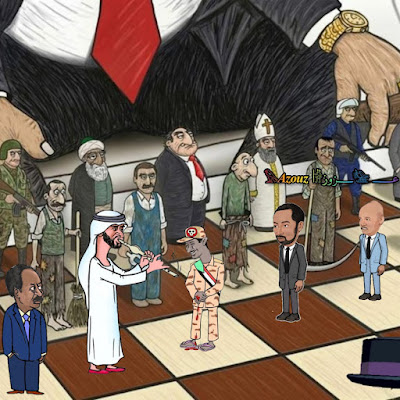HERE is a full copy of a Press Release from OCHA
(United Nations Office for the Coordination of Humanitarian Affairs)
Dated Monday 07 August 2023
SUDAN: Humanitarian Update (7 August 2023)
|
HIGHLIGHTS • More than 3 million people have been internally displaced across all of Sudan’s 18 states due to the ongoing conflict between the Sudanese Armed Forces (SAF) and the Rapid Support Forces (RSF), as of 1 August. • About 2.2 million of all people internally displaced have fled from Khartoum State. • About 880,000 people have fled the conflict across Sudan’s borders into neighbouring countries, including Central African Republic, Chad, Egypt, Ethiopia and South Sudan, as of 3 August. • About 20.3 million people across Sudan – over 42 per cent of the population – are now facing high levels of acute food insecurity between July and September 2023. More than 6.2 million people are just one step away from famine. • On 3 August, the first humanitarian convoy to reach East Darfur since the start of the conflict arrived in the state, after a nine-day road trip. |
|
SITUATION OVERVIEW As the conflict between the Sudanese Armed Forces (SAF) and the Rapid Support Forces (RSF) continues across the country, more people are being displaced and humanitarian needs are increasing daily. |
|
STATE UPDATES The majority of people internally displaced due to the conflict are from Khartoum State. IOM estimates that 2.2 million people have fled the state capital Khartoum, with 2.16 million people going to other states, while about 38,400 people have been displaced in seven locations within the state, mainly in Bahri (Khartoum North), Jebel Awlia, Karrari, Khartoum, Sharg An Neel, Um Bada and Um Durman localities. Most of these displaced people are living with relatives, while the rest have rented accommodations. |
|
HUMANITARIAN RESPONSE AND CHALLENGES Since the start of the conflict in mid-April, humanitarians have worked to ensure the continued delivery of life-saving assistance to people in need, wherever and whenever possible. On 3 August, the first humanitarian convoy to reach East Darfur since the fighting began on 15 April arrived in the state, after a nine-day road trip. OCHA negotiated with the SAF, RSF, state governor, HAC, and community leaders in North and West Kordofan and East Darfur states for the movement of these trucks from White Nile to East Darfur. The SAF and RSF secured the roads in their areas of control, and community leaders supported the movement of the relief items between Tandulti and Um Rawaba in North Kordofan, and from El Fula in West Kordofan to the border of East Darfur state. The Office for the Coordination of Humanitarian Affairs (OCHA) also facilitated the first cross-border delivery of food items by the World Food Programme (WFP) from Chad into West Darfur, one of the most food-insecure states in the country. Those supplies arrived in West Darfur on 3 August. Insecurity, bureaucratic access impediments, and looting of humanitarian premises and warehouses across the country continue to negatively impact the delivery of assistance. At least 18 aid workers have been killed, with many others injured or detained, since the start of the conflict in mid-April. Between 15 April and 3 August 2023, there have been 53 attacks on health care, resulting in 11 deaths and 38 injuries, according to the WHO Surveillance System for Attacks on Health Care (SSA). These figures only represent attacks that WHO has been able to verify through its verification system. Attacks on health care include incidents involving hospitals, ambulances, laboratories, warehouses, health workers and patients. Some humanitarian organizations have also been forced to shutter offices or suspend operations in areas they are unable to access due to security concerns, mainly in Khartoum and the Darfur region. Any remaining resources will be used to scale up operations in accessible areas. Funding shortfalls, the limited capacity of humanitarian personnel and government counterparts on the ground, lack of fuel needed for the transportation of humanitarian supplies and staff, lack of access to money in banks, and difficulties in delivering humanitarian supplies to areas outside state capitals due to insecurity have also affected the humanitarian response. These challenges are further compounded by power outages, as well as poor internet and telephone connectivity. |
|
CLUSTER UPDATES Food Security and Livelihoods Cluster: The Food Security and Livelihoods (FSL) Cluster partners continue to support people affected by the conflict with life-saving food and livelihood assistance. Since mid-April, FSL partners reached 2.03 million people with life-saving food assistance and 45,000 people with life-saving livelihoods assistance. FSL partners also distributed 2,800 metric tons (MT) of seeds benefitting 280,000 people. FSL partners plan to distribute a total of 8,840 MT of cereal seeds to 1 million vulnerable farmers for the planting season. The conflict is undermining the current planting season, coupled with soaring prices of fertilizer and seeds, which is impacting the food security and livelihoods situation in Sudan. The main livestock vaccination laboratory in Khartoum has been closed due to the conflict, and the resulting unavailability of livestock vaccines will also impact people’s livelihoods. [1] The SPHERE standards are a set of minimum standards in humanitarian response for water, sanitation and hygiene (WASH); food security and nutrition; shelter and settlement; and health assistance. |
|
FUNDING Humanitarian partners urgently require additional resources to scale up relief efforts across Sudan. The revised Sudan Humanitarian Response Plan (HRP) requires US$2.6 billion to provide life-saving multi-sectoral assistance and protection services to 18.1 million people through the end of this year. To date, the appeal is only 24.5 per cent is funded, with $628 million received as of 6 August, according to the Financial Tracking Service. |



